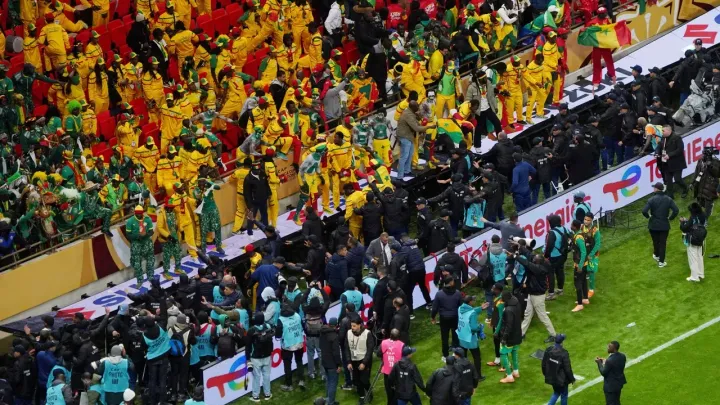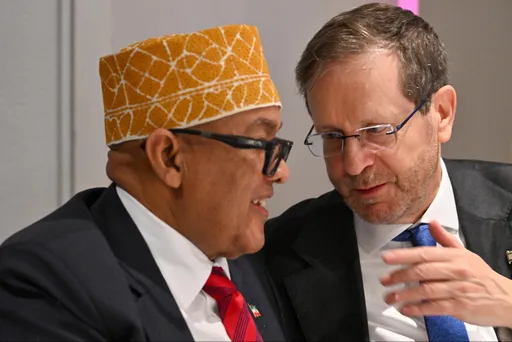As Côte d'Ivoire's 8.7 million-strong registered electorate prepares to vote on October 25, there is a familiar sense of anticipation in the air.
President Alassane Ouattara, seeking a fourth consecutive term in office, enters the five-horse race as the overwhelming favourite in the absence of the very faces that were supposed to run him close this time.
Ouattara's main challengers – erstwhile President Laurent Gbagbo and former Credit Suisse CEO Tidjane Thiam – are both off the ballot. By all accounts, his record of steering the country's economy and improving infrastructure is strong. And in a region plagued by military takeovers, he promises political stability.
For voters tasked with determining political destinies, it isn't just about reposing faith in the incumbent. This became an election of limited choices the moment Côte d'Ivoire's Constitutional Council barred Gbagbo and Thiam from contesting for different reasons – the former for a previous conviction and the latter purportedly over a citizenship dispute.
The remaining contenders for the presidency are Henriette Lagou Adjoua, president of the Group of Political Partners for Peace (GP-PAIX), Jean Louis Eugene Billon of the Democratic Congress (CODE), independent candidate Ahoua Don Mello, and former first lady Simone Gbagbo, the wife of Ouattara's predecessor.
Chequered legacy
Ouattara, nicknamed Ado, has overseen significant changes in Côte d'Ivoire during his 14 years at the helm.
An assortment of new roads, bridges and interchanges have transformed the infrastructure landscape. The economy averaged a growth rate of 6% annually for nearly a decade, making the world's biggest cocoa producer one of Africa's success stories.
An analyst at Oxford Economics Africa, believes economic performance matters most to voters and that it would be no different this time.
"This is to Ouattara's advantage. Since he became President in 2011, the country has grown. It's been a good place to do business. He is responsible for all of that," he tells TRT Afrika.
One-sided election?
The President's sidelined main rivals have slammed the upcoming election as a "civilian coup d'etat" and "electoral robbery", albeit to little effect.
Also, none among the remaining candidates has had the political muscle and backing to mount a formidable campaign against the ruling Rally of Houphouetists for Democracy and Peace (RHDP) party.
Ouattara's path to the election has been one strewn with political U-turns on term limits after the collapse of his reported succession plans. His two presumed heirs died within years of each other. He also had to contend with the looming trauma of a civil war that cost more than 3,000 lives and briefly ripped the country apart.
First elected in 2010 and re-elected in 2015 and 2020, the former international banker and deputy managing director of the IMF has referred to himself during his campaign "as a safe pair of hands" in a region rife with coups and terrorist activity.
The country's northern neighbours, Mali and Burkina Faso, have witnessed putsches over concerns of attacks by terrorist groups, making security a major election issue.
This was especially heightened after rumours of a coup d'etat surfaced in May this year, with videos of people demonstrating on the streets swarming social media sites.
Ouattara's administration has taken a hard line against the coups in West Africa, and the Ivorian military has succeeded in limiting incursions by terrorists operating from Burkina Faso.
French influence
As West Africa's second largest economy after Nigeria, Côte d'Ivoire faces a dilemma over its relationship with France. Across the region, strong Pan-Africanist sentiment has turned against the former colonial power.
Last year, Côte d'Ivoire was among several African countries that ended security partnerships with Paris and ordered French soldiers to hand back their military bases. Conradie argues that Saturday's election almost amounts to a referendum on the country's relations with France.
"The Françafrique narrative is going to be tested because Ouattara is a good friend of France and has a personal equation with his French counterpart Emmanuel Macron...It makes Côte d'Ivoire a bit of an outlier in West African politics," the analyst tells TRT Afrika.
Democratic concerns
Despite economic achievements and skilful diplomacy, critics of the current administration also point to what they see as a shrinkage of democratic space. They argue that impressive infrastructure masks frustration over the alleged collapse of democratic institutions.
Authorities have banned political rallies and demonstrations, citing the risk of public disorder. With just a few days to go for the election, dozens of civilians were sentenced on charges of "disturbing public order" and "assembling on public roadways" to participate in demonstrations.
Security forces have been deployed across major cities and in opposition strongholds in the southern and western regions. President Ouattara's supporters insist that preserving stability is essential.
The election outcome will perhaps mirror whether voters see the heavy security presence as reassurance or intimidation.





























